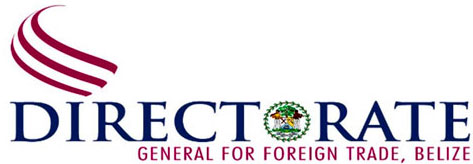Trade plays a significant role in the growth and development processes of countries through its linkages with most sectors of the economy. This happens via the effective operation of market mechanisms through which producers and consumers interact. Trade is equally of crucial significance to poverty reduction and welfare enhancement through employment creation in the formal and informal economies, in the trade in goods at the wholesale and retail levels, and trade in services which together provide MSMEs with opportunities for higher and more sustainable incomes through the exportation of their products. It is recognized that the very small size of the domestic market results in the need to rely on export markets to absorb the increased volumes of goods and services that is to be expected from new investments and existing ones under the existing policy of support to MSMEs and the prevailing Export Development Strategy. Thus, the Policy is founded on the understanding that maximization of benefits from trade is contingent on effective design and implementation of laws, regulations, and policy measures in the various disciplines, collectively referred to internationally as Trade Policy.
Since its independence, Belize has adopted a significant number of policy instruments on trade and has also actively participated in the multilateral, international and regional trade and economic frameworks, albeit without having in place a policy specifically referred to as “trade policy”. From its membership in the WTO (1995), the accession to the Treaty of Chaguaramas establishing the CARICOM (1974), and the Revised Treaty of Chaguaramas including the CSME (2001), Belize’s trade and development landscape has been guided by “fragmented” policy instruments. However, the complex demands of the regional and multilateral trading system, anchored on strong rules-based criteria, have necessitated the demand for focused, coherent and harmonious trade policy that meets national development needs as well as effectively positioning Belize to benefit from its engagement in the multilateral trading system. Added to this is the unpredictable and shifting dynamics in Belize’s primary and critical export markets such as the EU and U.S which further places greater emphasis on the need for effective and coherent trade policy to guide the country’s trade and development agenda. Additionally, an analysis of Belize’s trade performance has underscored the need for a comprehensive trade policy, rooted in a strong institutional and legal framework responsive to the inherent challenges and opportunities for trade growth.
With this rationale in mind, the Government of Belize has committed to the formulation and implementation of the National Trade Policy (2019-2030), the Vision of which is:
“To develop a competitive economy by utilizing trade as a significant driver for inclusive and sustainable socio-economic development”
The vision and the policy reflect the outcomes of the extensive nationwide stakeholder consultative process which can be summarised in three major themes i.e. (i) the need to enhance competitiveness; (ii) reducing the cost of doing business; and (iii) political drive. Further, the Policy is directly linked to and seeks to be one of the main instruments through which the objectives outlined in the Horizon 2030 and the Growth and Sustainable Development Strategy (GSDS) Critical Success Factor No.1 – Optimal National Income and Investment are to be achieved.
The National Trade Policy seeks to achieve the following objectives:
- Reduce the cost of doing business, enhance competitiveness and develop efficient production systems and capacities;
- Improve trade performance for goods and services, diversify production and export basket and enhance value addition;
- Develop and enhance the growth of services trade and put in place an effective institutional and legal framework;
- Build and strengthen multilateral, regional and bilateral trade relations and enhance market access and entry; and
- Build a strong and effective institutional and legal framework for trade development, with competent human capital and an entrepreneurial mindset;
The National Trade Policy is guided by three Principles and rooted in four Pillars, as outlined below:
| Guiding Principles |
Policy Pillars |
| i. Promoting Competitiveness
ii. Attainment of Asymmetrical Treatment iii. Commitment to Regionalism |
1. Institutional Capacity Building;
2.Supply Capacity Strengthening; 3.Enhancement of Market Access; 4.Trade Facilitation |
The Trade Policy places significant importance on the value of synergies and interplay with other national policies, strategies and frameworks, which include but are not limited to, inter alia, the National Agricultural Policy, the National Export Strategy and the National Investment Policy (to be developed). Thus, the interaction among sectors in the economy and institutional collaboration is a key ingredient for the effective application of this Policy.
The Policy highlights Belize’s strengths, weaknesses, opportunities and threats, as well as constraints and challenges in international and domestic trade within the context of existing trade-related policies, and identifies strategies and programmes to sustain the economy within the tenets of the national development plans. It also gives due regard and attention to the cross-cutting factors linking all sectors, and makes provision for continuous strengthening of national capacities under the Aid-for-Trade agenda of the WTO.
An implementation plan for the Policy has been developed, which outlines the institutional framework as well as a monitoring and evaluation (M&E) mechanism. The DGFT will be the principal institution coordinating the implementation of the Trade Policy. Additionally, collaboration is expected with all relevant Ministries, government departments and agencies including the Cabinet-approved TTT. The Policy has a 12 year life, to be implemented from 2019 to 2030 and will have a mid-term review after 6 years of implementation.
Click here to view and download the National Trade Policy approved by the Cabinet.
